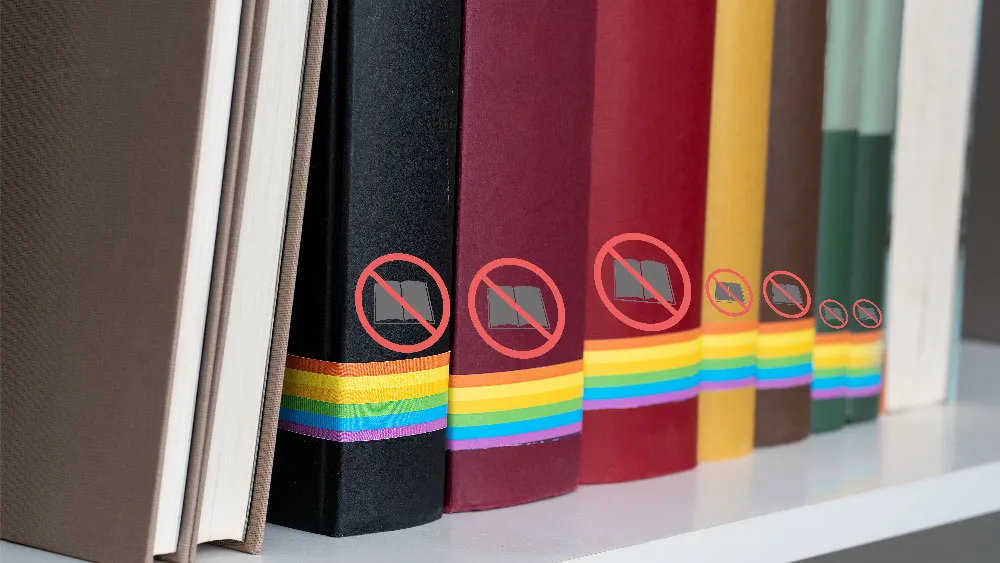May 10, 2007
Presidential Influence
Peter Cassels READ TIME: 6 MIN.
Would a statewide ballot campaign on marriage rights in Massachusetts impact the 2008 presidential election? Marriage equality advocates say it would. It was one of the points made by MassEquality Campaign Director Marc Solomon when he met recently with officials from the Democratic National Committee. And it's a point that members of the Massachusetts congressional delegation are making as they talk with local lawmakers in an attempt to persuade them to keep the amendment off the 2008 ballot.
But political analysts aren't so sure a Massachusetts marriage campaign would have that much influence in the 2008 election. Charlie Cook, editor of the nonpartisan Cook Political Report, asserted in an e-mail exchange with Bay Windows that marriage has lost its edge as a political wedge issue. "I don't think it will get noticed," Cook said of an anti-gay marriage ballot campaign in the Bay State. "It's yesterday's issue. There is way too much going on this time."
Democratic media consultant and strategist Dan Payne expressed similar sentiments. He said he suspects that a Massachusetts amendment battle won't catch the attention of voters beyond New Hampshire, given that the Boston media reaches into the southern part of the Granite State. A "heated battle" on marriage equality, says Payne, "might influence New Hampshire Democrats, or more likely independents, who hold the balance of power in New Hampshire, but I don't see it going much beyond the Boston media."
Although it's still debated whether or not statewide ballot campaigns on marriage impacted the outcome of the 2004 presidential race, there's little question that heated campaigns in 11 states helped turn out conservative Republican voters. In his new book The Jesus Machine: How James Dobson, Focus on the Family, and Evangelical America Are Winning the Culture War, Dan Gilgoff, a senior editor for U.S. News & World Report, writes that the Ohio ballot campaign on marriage all but delivered the state to George W. Bush and, thus, the presidency. It's impossible to isolate "one factor" as the deciding one in the Ohio 2004 election, Gilgoff writes. But, "raw election data suggest that Issue One [the marriage question] was a crucial factor, and perhaps the deciding one. Ohio's white evangelicals were Issue One's strongest supporters, supplying more than half its votes, and they backed Bush over [John] Kerry by 75 to 25 percent, supplying one in three Bush votes."
That said, Massachusetts is not a swing state and it's hard to see how even record voter turnout in Massachusetts would impact the presidential election. Dr. Jay Barth, Associate Professor of Politics and director of Civic Engagement Projects at Hendrix College in Arkansas, has written on the electoral impact of marriage amendment ballot questions. He told Bay Windows that he doubted a statewide campaign would influence the 2008 presidential race. "Clearly, it's going to put the issue on the agenda maybe a bit more than it would have been otherwise," Barth said, adding that if former Gov. Mitt Romney is the Republican nominee it would move the issue "up a couple of notches in terms of how much attention it gets."
Still, a Massachusetts ballot campaign is not going to impact voter turnout in other states, Barth said. "It seems pretty clear that turnout's only really affected when there is an amendment on the ballot in each state and there may be two or three states which have amendments on the ballot in 08, but we're pretty much out of states," Barth says. "I think this issue is starting to feel a little stale nationally. ... In modern American politics, folks' attention spans are pretty short."
But Solomon rejects such assertions. First, if the measure goes to the ballot he is certain that Romney, who is looking to capture the right-wing base, will talk about it every chance he gets due to the fact that he was a party to the lawsuit late last year that effectively pressured the state legislature into taking a substantive vote on the amendment on Jan. 2. Second, Solomon said the high-stakes nature of preserving marriage equality in the only state where it's legal will divert LGBT dollars - which traditionally go in vast sums to Democratic candidates - away from the presidential race. Additionally, Solomon said, because voters would be weighing in on civil marriage rights in the only state where it's legal for lesbian and gay couples to wed, it's far more politically potent than it would be in any other state. "It's not going to be, 'Ho-hum, gay marriage is on the ballot in Massachusetts,'" Solomon said. "It's going to be in the one state where gay couples can get married. It would be a national story and so candidates would have to take a position on it and would talk about it."
And that's where the issue could prove sticky for Democrats, who continue to walk a fine line between being supportive of LGBT rights and appealing to the voting majority, which still opposes same-sex marriage. Top-tier candidates like Sen. Hillary Clinton, former North Carolina Sen. John Edwards and Sen. Barack Obama are on record as supporting civil unions and opposing marriage equality, and all have tapped early financial and volunteer support from the LGBT community. But they'd certainly curry no favor with the community should they come out in favor of taking marriage rights away in Massachusetts. Congressman Barney Frank concedes that Democratic candidates in 2004 "got something of a pass" if they supported constitutional amendments in states that were unlikely to achieve marriage equality anytime in the near future anyway. "But where you have this on the ballot that would take away marriage rights we already have," said the openly gay Newton lawmaker, "nobody gets a pass on that. Every Democratic candidate will have to come out against that and I understand they'd rather not."
In interviews with Bay Windows, Frank, fellow Congressmen James McGovern of Worcester, Mike Capuano of Somerville, Bill Delahunt of Quincy and a spokeswoman for Congressman Ed Markey of Malden all indicated that the congressional delegation is unanimous in its support for keeping the amendment, which needs just 50 votes to pass, from being put on the ballot. "The entire congressional delegation is united," said McGovern. "Every one of us." Some said they have already spoken to state lawmakers but declined to name them.
Both McGovern and Capuano said that defeating the amendment was a topic of conversation during a recent meeting with Gov. Deval Patrick, who has expressed his desire to see the amendment disposed of by any means necessary. "The matter was discussed," said Capuano of the Massachusetts delegation's recent meeting with the governor. "Everyone present seemed to be of the same mind. ... We support equal marriage and we want to win the White House and keep the House and the Senate because there are too many issues at stake here, like war and peace."
Patrick's press office did not respond to a request for comment.
Even Kerry, who, supported the Travaglini-Lees compromise amendment in 2004 and voiced opposition to the state Democratic Party's pro-equality plank back in 2005, has come out swinging against the amendment. In a statement issued in response to an inquiry about his involvement in efforts to defeat it, Kerry stated: "This amendment is wrong. It's nothing but punitive. It has no provision for civil unions, and it doesn't even purport to provide for equal rights. I just don't believe this kind of punitive effort belongs on the ballot. Ensuring a good education, implementing health care for all Massachusetts [residents] providing affordable housing across the state - these are the issues that need our attention." Likewise, Sen. Ted Kennedy's office released a statement in which he reiterated his support for the Goodridge decision and expressed his hope "that Massachusetts will continue to lead the country in providing equal rights for same-sex couples and their families."
McGovern said he fears that if the amendment goes to the 2008 ballot he is concerned that "every right-wing group in the country" will make it an issue in the presidential race, thus distracting from genuine campaign issues like the Iraq war. The issue of marriage equality has already been settled in Massachusetts, as far as he's concerned. "I don't want this to predominate," said McGovern.
Capuano confessed to having "mixed emotions" about whether or not the anti-gay marriage amendment should go on the ballot. On the one hand, he's confident that if it did go to a vote, "My side would win." On the hand, he counters, "I know if it's in 2008, it will play in West Virginia ... and everywhere else. That's just the nature of politics."
Peter Cassels is a recipient of the National Lesbian and Gay Journalists Association's Excellence in Journalism award. His e-mail address is [email protected].







